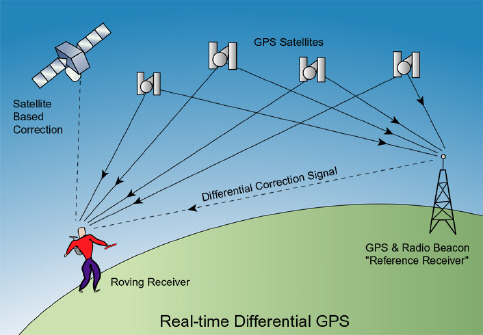A-GPS & GPS
 |
| A-GPS & GPS |
A-GPS
and GPS are different navigational aids that
both use information from satellites to determine their exact location on
Earth. GPS stands for Global Positioning System. A GPS device communicates with
four or more satellites to determine its exact location coordinates anywhere on
Earth. It works in cloudy weather as long as the device has a clear line of
sight to the satellites.
A-GPS stands
for Assisted Global Positioning System. While it works on the same principles
as a GPS the difference here is that it gets the information from the
satellites by using network resources e.g. mobile network, also called
assistant servers.
Comparison chart
A-GPS
|
GPS
|
|
Stands for:
|
Assisted Global Positioning System
|
Global Positioning System
|
Source of triangulation
information:
|
Radio signals from satellites and
assistance servers e.g. mobile network cell sites
|
Radio signals from GPS satellites
|
Speed:
|
A-GPS devices determine location
coordinates faster because they have better connectivity with cell sites than
directly with satellites.
|
GPS devices may take several
minutes to determine their location because it takes longer to establish
connectivity with 4 satellites.
|
Reliability:
|
Location determined via A-GPS are
slightly less accurate than GPS
|
GPS devices can determine location
coordinates to within 1 meter accuracy
|
Cost:
|
It costs money to use A-GPS
devices on an ongoing basis because they use mobile network resources.
|
GPS devices communicate directly
with satellites for free. There is no cost of operation once the device is
paid for.
|
Usage:
|
Mobile phones
|
Cars, planes, ships/boats
|
